Graham Reid | | 5 min read

Some of the most interesting music has been immersed in the politics of its day.
The attitudes of musicians are a reaction to the social, political and economic happenings that surround them.
The Made in America festival – which played out over two nights in the Benjamin Franklin Parkway in Philadelphia on September 1 and 2 in 2012 – was designed to accommodate the vision of the artists, the roadies, the foodies, and the audience who attend it.
Ron Howard’s film of the same name – now out on DVD and Blu-ray – is a documentary that captures the overarching theme that inspired the festival: music being used as power to unify people.
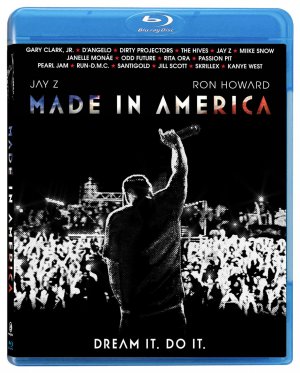 The documentary looks at the festival founded
by Jay Z and his vision: People from all backgrounds, all races, and
all people with different sexual preferences can come together and
feel accepted through the use of different music and genres.
The documentary looks at the festival founded
by Jay Z and his vision: People from all backgrounds, all races, and
all people with different sexual preferences can come together and
feel accepted through the use of different music and genres.
The point is that everybody and anybody are welcome, welcome to be who they are and have a good time being it. The superstar Jay Z has a vision about Made in America to bring all these people from different walks of life to create an intensely hyper music festival.
Skrillex, an electronic god, shares the same stage as The Hives, a Swedish rock band; Jill Scott, a soul singer whose music dabbles in an almost operatic style; and Dirty Projectors, who experiment with different musical instruments and sounds. The crowd is treated with these different artists who produce good music that toys with other sounds of different genres.
Jay Z narrated the Budweiser’s ad ‘Makers of Tomorrow’ promoting the festival, and gave a spiel about ‘all like-minded people’ coming together ,equally curious about one genre of music as they are about another. He believes that one genre cannot be contained and kept apart.
“We are finally living out our creed.”
We are finally allowing people to be themselves, in terms of their own identity and the acceptance of all genres of music.
Can this utopian view really work?
I give Jay Z massive credit for wanting to create this ideal world where music can break down barriers like racism and sexism, but does this festival really make this happen?
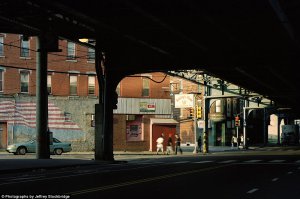 In the doco, Jay Z talks about
representing hope. He stands up at a podium at a press call promoting
the festival and talks about the struggles people are facing in
Philadelphia because of the recession, because of the lack of jobs,
and lack of opportunities. Jay Z is promoting his festival as if it
were able to solve these problems, bring revenue into the city and
help local businesses. This ideal is not one to dispute as good. But
can it work?
In the doco, Jay Z talks about
representing hope. He stands up at a podium at a press call promoting
the festival and talks about the struggles people are facing in
Philadelphia because of the recession, because of the lack of jobs,
and lack of opportunities. Jay Z is promoting his festival as if it
were able to solve these problems, bring revenue into the city and
help local businesses. This ideal is not one to dispute as good. But
can it work?
Jay Z says, “After all these tragedies, creativity is born.”
It seems to be a good sales pitch.
The stats recorded after the festival support his claim. City officials told The Huffington Post the festival generated US$10 million that impacted the city economically. There were 80,000 people attending throughout the two days and they spent up large. In this sense, the festival did bring in money for the city. It could have inspired musicians and created opportunities for further business ventures.
The documentary focuses on Jay Z throughout, rightly so, as he founded and created the festival. It paints him as a sort of saint. He has struggled and overcome the street life, had things in the way but worked hard and became who he wanted. Jay Z even takes Ron Howard back to his old ‘stash spot’ that he talks about in his song Empire State of Mind, on 560 State Street.
We see the life that engulfed him as a child and then contrast it to the screaming fans and big stages he performs on now, and we can see the lives he has touched with his songs. Howard also links various other artists who perform in the festival with the ideas Jay Z talks about: the struggles and obstacles you face/overcome when growing up in America, as we learn of Janelle Monae’s humble beginnings, helping her mother pay the light bill with her winnings from a talent show, she has a sense of pride from where she comes from, as it has shaped who she is today.
And, we follow a food stall as it prepares for the festival and see the successful outcomes.
Howard tells us the story of a roadie who is trying to become an entrepreneur in a commercially driven world. He is losing sight of his American Dream as he sees opportunities slip away. How can Americans keep going on in a consumer society? How can Americans struggling in a state of economic deprivation create the American Dream? Is it still possible to dream the American Dream that advertisements and marketing companies show you the life you should be leading?
What is the dream?
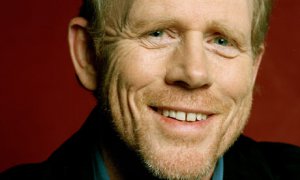 To the security crew Howard (right) interviews,
the American Dream is about opportunities. It’s about being
ambitious but also being allowed the opportunities to make this
happen. Howard tells The Big Issue, “I was shocked by how pervasive
that belief in the American Dream was around the festival.” This
idea of the American Dream, or lack thereof, relates to the deprived
state of the economy, not only in Philadelphia, but all over America.
To the security crew Howard (right) interviews,
the American Dream is about opportunities. It’s about being
ambitious but also being allowed the opportunities to make this
happen. Howard tells The Big Issue, “I was shocked by how pervasive
that belief in the American Dream was around the festival.” This
idea of the American Dream, or lack thereof, relates to the deprived
state of the economy, not only in Philadelphia, but all over America.
Howard confessed to The Guardian that he has no idea about hip hop or about making documentaries. When he started this project, he knew only about 30 percent of the artists performing. He was a virgin to this genre of film-making, and brought to this documentary a naivety that helped portray Jay Z’s idealistic view.
The merging of genres and the merging societal values combine to create a festival that will create hope in the city of Philadelphia.
If it works or not, it doesn't really matter because festivals are all about the coming together of people having a good time and appreciating good music. Having Pearl Jam and Jay Z perform together 99 Problems promotes this idea that genres of music can be easy to collapse.
As Jay Z says, “Music is a form of expression. Music is emotion. Music is about passion, about pain, and love.”
It’s universal; it can reach anyone who will listen. Jay Z says you need to have an open mind to be empathetic: to music as well as to other people and their situations.
Made in America celebrates all things different coming together to produce two days of solid rock’n’roll, soul-infused hip-hop with an electronic beat.
For this, we thank you, Jay Z.
Susan Epskamp is a self-described wanna-be music journalist and the person in her group of friends who always gets a weird look when she choose a song to listen to. She says she aspires to be more like John Lennon in her style of writing, "quirky, but deep and meaningful". Her previous work at Elsewhere is here.
Other Voices Other Rooms is an opportunity for Elsewhere readers to contribute their ideas, passions, interests and opinions about whatever takes their fancy. Elsewhere welcomes travel stories, think pieces, essays about readers' research or hobbies etc etc. Nail it in 1000 words of fewer and contact graham.reid@elsewhere.co.nz.
See here for previous contributors' work. It is wide-ranging.

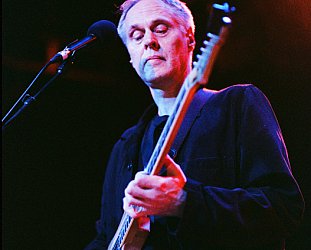
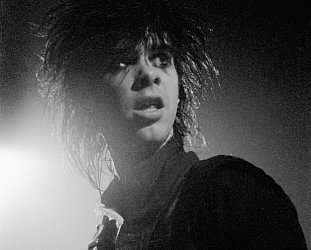
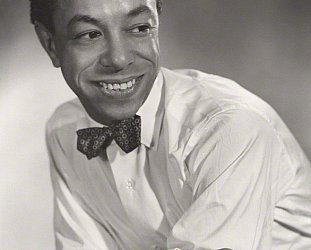
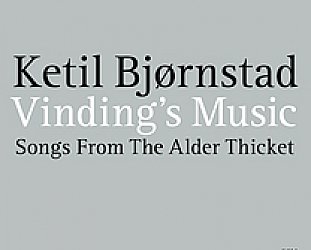
post a comment